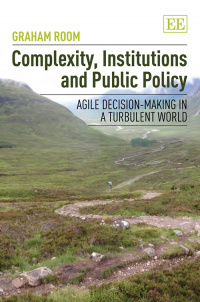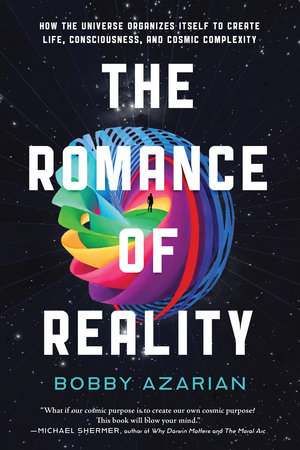
Arjun K. Dinesh
- Library Trainee
- Arjun.K@jgu.edu.in
- 130

Naresh Singh
- Professor
- naresh@jgu.edu.in
- 130

Sudip Patra
- Professor
- spatra@jgu.edu.in
- 130

M Madhan
- Library Director
- madhan@jgu.edu.in
- 130 1845
The objectives of the course is to provide a solid foundation for transdisciplinary enquiry into the wicked policy problems wherever they occur and seeking solutions that go beyond single discipline approaches, whether these be economics, political science, anthropology, hermeneutics, demography, ethnography etc. In addition, the examples and case studies will be drawn from global policy problems but with a particular focus on the global South, especially the BRIC countries.
In natural science, the Newtonian worldview ruled from ca1700 to1920. The underlying framework was perfect determinism based on excellent knowledge of nature’s initial values and dynamic laws. Hence, uncertainty or probabilistic understanding of events resulted from ignorance of underlying degrees of freedom. It is perfectly possible in principle to know every such underlying factor and then predict ad infinitum the dynamic evolution of the entire universe. The rise of thermodynamics provided a big jolt to such a deterministic framework. The theory of relativity, or Einstein’s revolution (special and general theories of relativity), changed our centuries-old prejudices about space and time and provided a new dynamic space-time picture; it was also based on locality and determinism principles.
The foundational shift in natural science began with the rise of quantum mechanics from 1925 onwards. Striking features observed in the sub-atomic world were fundamental uncertainty, contextuality-complementarity, and non-locality (exemplified in Schrodinger’s cat metaphor). Since its inception, quantum mechanics has exhibited a remarkable duality, on the one hand, astonishing empirical success, but on the other hand, challenging problems of interpretations. Since 1925 there have been dozens of variations and alternative theories, all fascinating in their approach to reality. However, one can indeed observe that our worldview has completely transformed generally. Even in the 1930s, the series of conversations between two sages, Einstein and Tagore, revealed the tension between the older Greek objective non-contextual world view and the evolving ‘participatory realism’ view motivated by quantum revolution.
Historically, social sciences, particularly decision theory, have been motivated by physics. One can observe Adam Smith, the Guru of economics discipline (in the West at least), has been given a parallel status in social science to Newton in natural science. The General equilibrium framework of Neo-classical economics has been based on methodological inputs from mechanics at large. The rise of quantum-like modelling in decision theory and social science has pushed the horizon. Decision processes, both individually and in collectives, are riddled with contextuality and uncertainties, better described by quantum-like frameworks. Also, in international relations and political science literature, there is a rise of quantum-like awareness that social realities are entangled (metaphorically at least) and that there can be ontological emergences, which have produced a good interest in quantum philosophy.
Against this backdrop, there is a need for a philosophical and interdisciplinary PhD level course, which would draw from different philosophical schools of science (Eastern and Western) and aim to provide pragmatic insights into real-world problem solutions. How might quantum-like thinking and complex adaptive systems address wicked policy problems?
The foundational shift in natural science began with the rise of quantum mechanics from 1925 onwards. Striking features observed in the sub-atomic world were fundamental uncertainty, contextuality-complementarity, and non-locality (exemplified in Schrodinger’s cat metaphor). Since its inception, quantum mechanics has exhibited a remarkable duality, on the one hand, astonishing empirical success, but on the other hand, challenging problems of interpretations. Since 1925 there have been dozens of variations and alternative theories, all fascinating in their approach to reality. However, one can indeed observe that our worldview has completely transformed generally. Even in the 1930s, the series of conversations between two sages, Einstein and Tagore, revealed the tension between the older Greek objective non-contextual world view and the evolving ‘participatory realism’ view motivated by quantum revolution.
Historically, social sciences, particularly decision theory, have been motivated by physics. One can observe Adam Smith, the Guru of economics discipline (in the West at least), has been given a parallel status in social science to Newton in natural science. The General equilibrium framework of Neo-classical economics has been based on methodological inputs from mechanics at large. The rise of quantum-like modelling in decision theory and social science has pushed the horizon. Decision processes, both individually and in collectives, are riddled with contextuality and uncertainties, better described by quantum-like frameworks. Also, in international relations and political science literature, there is a rise of quantum-like awareness that social realities are entangled (metaphorically at least) and that there can be ontological emergences, which have produced a good interest in quantum philosophy.
Against this backdrop, there is a need for a philosophical and interdisciplinary PhD level course, which would draw from different philosophical schools of science (Eastern and Western) and aim to provide pragmatic insights into real-world problem solutions. How might quantum-like thinking and complex adaptive systems address wicked policy problems?
PhD Students from various disciplinary backgrounds are interested in transdisciplinary approaches to academic research and problem-solving.
We aim to provide a first of its kind PhD level course) at the interface of the sciences- social and natural- drawing from various disciplines and integrating concepts and frameworks such as consilience, complex adaptive systems and quantum-like modelling. It should even help PhD scholars understand why their degrees are called a doctor of philosophy!
We aim to provide a first of its kind PhD level course) at the interface of the sciences- social and natural- drawing from various disciplines and integrating concepts and frameworks such as consilience, complex adaptive systems and quantum-like modelling. It should even help PhD scholars understand why their degrees are called a doctor of philosophy!
- Appreciation of the complexity of wicked policy problems and why it is necessary to use a transdisciplinary approach.
- Understanding the intellectual foundations of the main academic disciplines and their limitations in dealing with complex policy problems.
- Developing a deep understanding of transdisciplinary approaches to concrete problem-solving.
- Ability to use a transdisciplinary approach to pursue advanced academic research and solve real-world problems.
2. Complexity and Public Policy: A New Approach to 21st Century Politics, Policy And Society / by Robert Geyer, Samir Rihani (Print copy and e-book available in the collection)
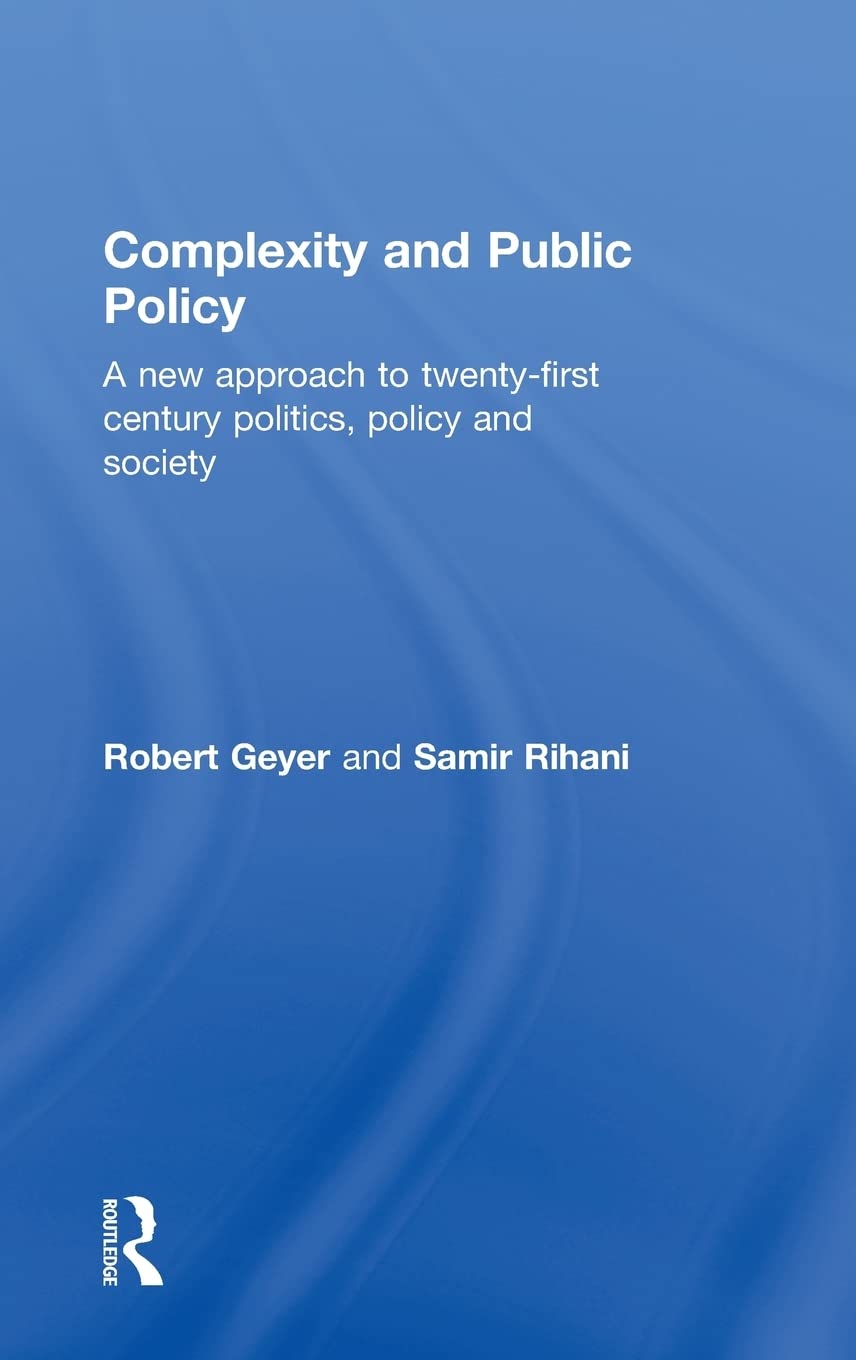
The whole book is recommended.
3. Wicked Problems in Public Policy: Understanding and Responding to Complex Challenges / by Brian W. Head (open access e-book)
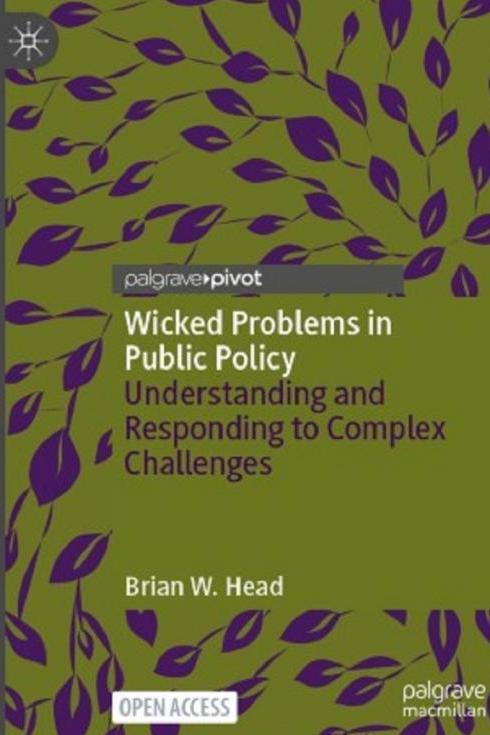
The whole book is recommended.
4. Transdisciplinarity: Joint Problem Solving among Science, Technology, and Society / edited by Julie Thompson Klein; et.al. (available through Researchgate)
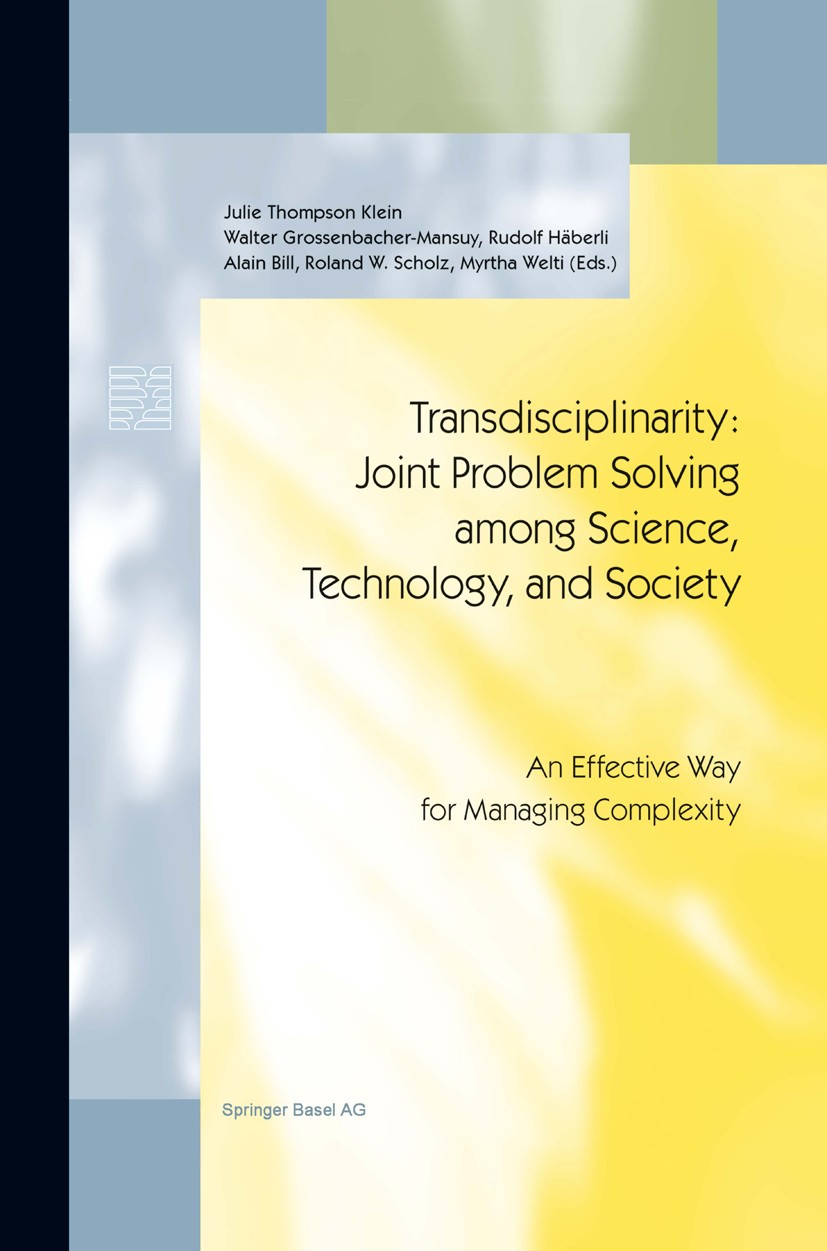
Keynote addresses which start from chapter 3 in several subsections
Chapter: What Kind of Science Does our World Need Today and Tomorrow? A New Contract between Science and Society. Charles Kleiber
Chapter: The Potential of Transdisciplinarity. Michael Gibbons, Secretary General of the Association of Commonwealth Universities, London, UK.
Chapter: Mobilizing the Intellectual Capital of Universities. Uwe Schneidewind, Institute for Business Administration, University of Oldenburg, Germany.
5. Worldviews: An Introduction to the History and Philosophy of Science by Richard DeWitt (3rd edition) [2nd ed. available in the library]
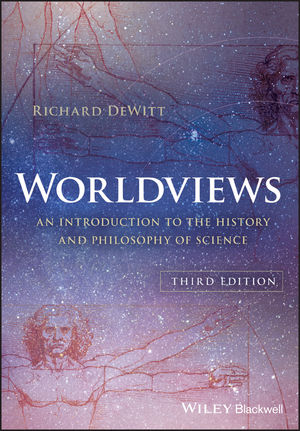
Chapter 1 : Basic introduction to Aristotelian world views till Newtonian, this might be just a preliminary reading to see how we need to deviate and build upon.
Chapter 5: important reading, covers some fundamental frameworks of scientific discourses and methods of studying the world.
Chapter 7: a good introduction to falsifiability as a scientific method.
Chapter 31: a good non technical summary of different scientific theories.
6. Worldviews, Science and Us: Philosophy and Complexity / edited by Carlos Gershenson (available through EBSCO e-book Platform)
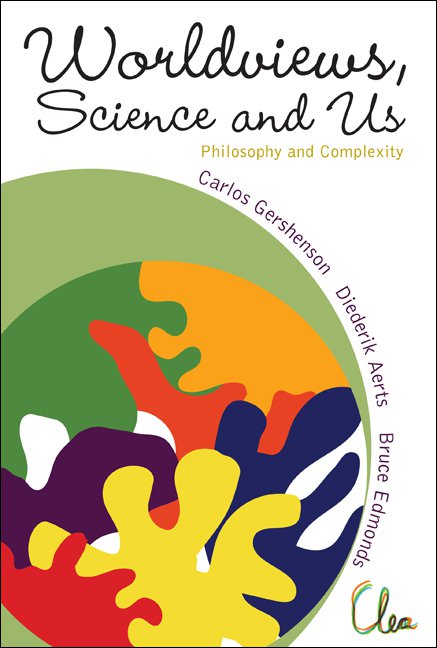
Chapter: restricted complexity
Chapter: complexity science
Chapter: truth in complex adaptive systems
Chapter: complexity as epistemic revolution
7. Worldviews, science and us : redemarcating knowledge and its social and ethical implications / edited by Diederik Aerts (available through EBSCO e-book platform)
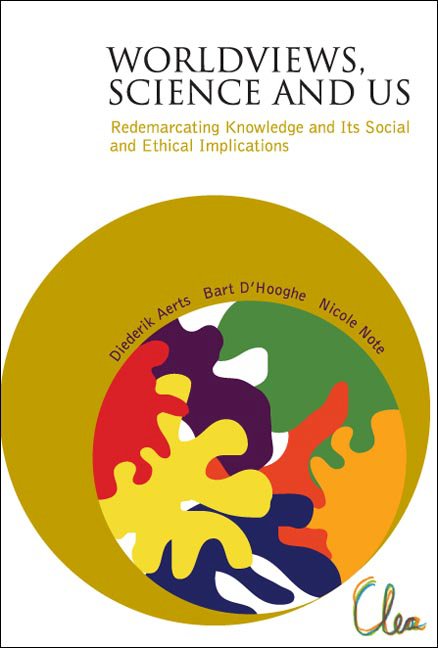
Chapter: arguments in favor of inclusive science
Chapter: inclusive worldviews
Chapter: science and knowledge practices
8. Radical uncertainty: Decision-making for an unknowable future / by John Kay (Print copy available in the library)
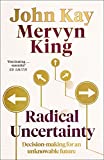
The full book is recommended. as a semi-technical introduction to the history of radical uncertainty research in economics and policymaking.
9. Consilience: The Unity of Knowledge / by Edward Osborne Wilson (not available in the collection)
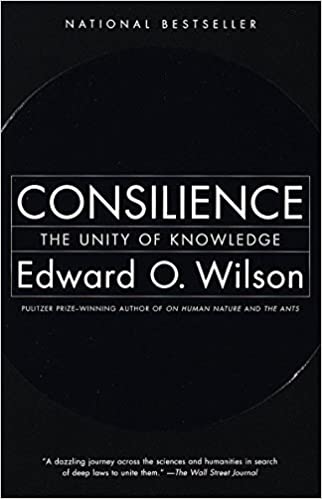
Chapter: Great branches of learning
Chapter: social sciences
10. Complexity Economics: Economic Governance, Science and Policy / By Olivér Kovács (order placed)
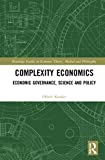
The full book is recommended.
11. Complexity Economics: Proceedings of the Santa Fe Institute's 2019 Fall Symposium / edited by W. Brian Arthur (Kindle version available in the library)
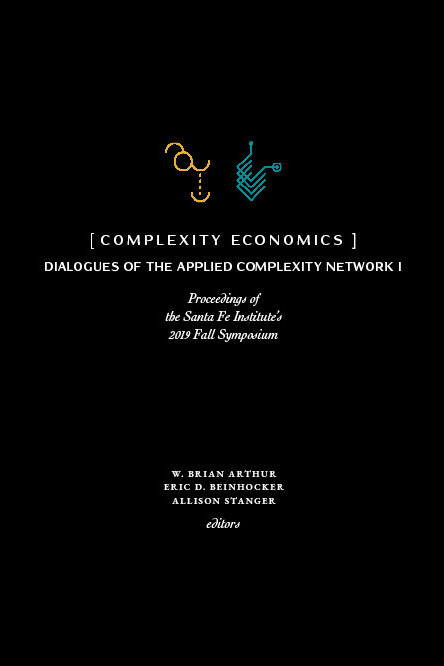
The full conference proceedings are recommended.
13. The Master and His Emissary: The Divided Brain and the Making of the Western World / by Iain McGilchrist (available through EBSCO e-book platform)
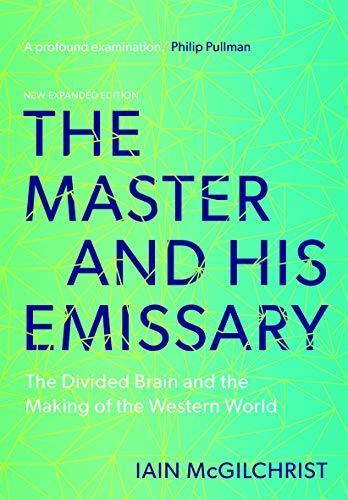
This is a central text for the whole course, particularly for applied spirituality and its practices for a sustainable world.
1. Reality+: Virtual Worlds and the Problems of Philosophy / by David J. Chalmers (Print copy available in the library)
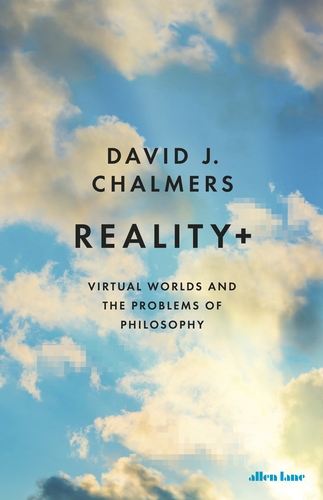
Particular chapters will be referred to as and when required.
2. The Case Against Reality: Why Evolution Hid the Truth from Our Eyes / by Donald Hoffman (title not available in the collection)
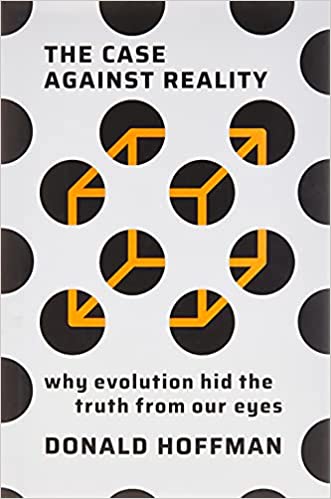
Particular chapters will be referred to as and when required.
3. New Thinking in Complexity for the Social Sciences and Humanities: A Generative, Transdisciplinary Approach / by Ton Jörg (Print copy available in the collection)
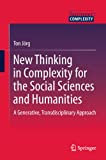
Particular chapters will be referred to as and when required.
4. Handbook on Complexity and Public Policy / Edited by Robert Geyer (Print copy available in the collection)
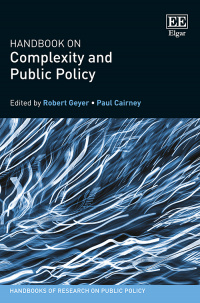
Particular chapters will be referred to as and when required.
5. Helgoland: making sense of the quantum revolution / by Carlo Rovelli (Print copy available in the library)
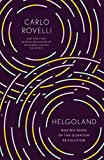
A very good introduction to modern Quantum science, also one short chapter on Buddhism and quantum mechanics. As and when required.
6. Complexity and the Economy / by Brian Arthur (not available)
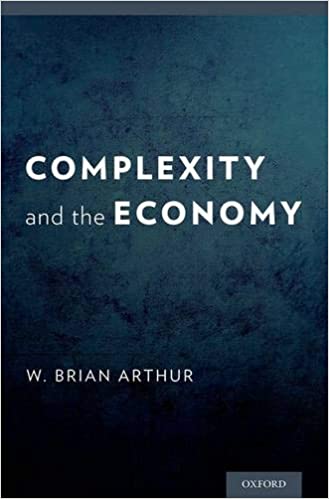
Particular chapters will be referred to as and when required.
7. The Matter With Things: Our Brains, Our Delusions, and the Unmaking of the World / by Iain McGilchrist (not available)
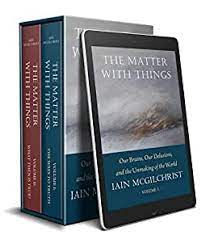
Particular chapters will be referred to as and when required.
1. Brys, Z. and Bokor, P., 2013. Evaluation of Ken Wilber's integral psychology from a scientific perspective. Journal of Spirituality in Mental Health, 15(1), pp.19-33.
2. Bohr, N., 1960. The unity of human knowledge. American Journal of Hospital Pharmacy, 17(11), 694-697.
3. Rovelli, C., 2018. Physics needs philosophy. Philosophy needs physics. Foundations of Physics, 48(5), pp.481-491
4. Glattfelder, J.B., 2019. Philosophy and Science: What Can I Know?. In Information—Consciousness—Reality (pp. 299-344). Springer, Cham.
5. Arthur, W.B., 2021. Foundations of complexity economics. Nature Reviews Physics, 3(2), pp.136-145.
6. Hut, P., Goodwin, B. and Kauffman, S., 2018. Complexity and Functionality: A Search for the Where, the When, and the How. In Unifying Themes in Complex Systems Volume, I (pp. 259-270). CRC Press.
7. Khrennikov, A. (2022). Quantum Probability for Modeling Cognition, Decision Making, and Artificial Intelligence. In: Accardi, L., Mukhamedov, F., Al Rawashdeh, A. (eds) Infinite Dimensional Analysis, Quantum Probability and Applications. ICQPRT 2021. Springer Proceedings in Mathematics & Statistics, vol 390. Springer, Cham. (print copy available in the library)
8. Patra, S., 2019. Agents’ Behavior in Crisis: Can Quantum Decision Modeling Be a Better Answer?. In The Globalization Conundrum—Dark Clouds behind the Silver Lining (pp. 137-156). Springer, Singapore.
9. Khrennikova, P. and Patra, S., 2019. Asset trading under non-classical ambiguity and heterogeneous beliefs. Physica A: Statistical Mechanics and its Applications, 521, pp.562-577.
10. Patra, S. and Ghose, P., 2020. Quantum-like modelling in game theory: Quo Vadis? A brief review. Asian Journal of Economics and Banking.
11. Patra, S. and Ghose, P., 2022. Classical optical modelling of social sciences in a Bohr–Kantian framework. In International Conference of the Thailand Econometrics Society (pp. 221-244). Springer, Cham.
12. Patra, S. and Ghose, P., 2022. Classical optical modelling of the ‘prisoner’s dilemma’game. In International Conference of the Thailand Econometrics Society (pp. 245-260). Springer, Cham.
13. Dzhafarov, E.N., Kujala, J.V. and Cervantes, V.H., 2015, July. Contextuality-by-default: a brief overview of ideas, concepts, and terminology. In International Symposium on Quantum Interaction (pp. 12-23). Springer, Cham.
14. Basieva, I., Cervantes, V.H., Dzhafarov, E.N. and Khrennikov, A., 2019. True contextuality beats direct influences in human decision making. Journal of Experimental Psychology: General, 148(11), p.1925.
15. El‐Taliawi, O.G. and Hartley, K., 2021. The COVID‐19 crisis and complexity: A soft systems approach. Journal of Contingencies and Crisis Management, 29(1), pp.104-107.
16. Mas’ud, R. and Syamsurrijal, M., 2022. The complexity of policy making in pandemic crisis: Harmonizing national policy with global prevention pandemic policy. International Journal of Health Sciences, pp.774-796.
17. Hayek, F. A; 1945, The use of knowledge in society. American Economic Review 35(4)
18. Hayek, F. A; 1974, The Pretence of Knowledge (essay presented by Hayek on the occasion of his Nobel Prize in Economics).
| LECTURE 1 NS |
Worldviews, Nature of truth, reality and knowledge. Nature of reality (Bitbol, Wisdom Traditions, Consciousness studies). |
| LECTURE 3 Arup and SP | Can there be a genuine dialogue between math, science and humanities? For example, how meaning is generated in all domains of knowledge? What is the agency in all domains of knowledge? |
| LECTURE 4 NS&SP |
Consilience (E O Wilson, Kuhn) Basic understanding of scientific methodology: falsifiability, aka, Karl Popper. Structure of Scientific Revolutions (Kuhn): how do paradigmatic shifts happen in science? Do we observe similar patterns in both social and natural sciences? Henri Poincare used to hold that science works through ruins upon other ruins. |
| LECTURE 5 NS | Integral Meta Theory (Ken Wilber). Linking inner human knowing and understanding to the external social systems world where public policy happens. Surveys the disciplinary methods which are integrated to make the connections. |
| LECTURE 7 SP &NS |
Can natural and social sciences be unified? In the book ‘Galileo’s Mistake’ the author makes a strong point that from the inception of modern science, particularly Physics, there has been a typical mechanistic approach by trying to ignore the human perception and consciousness, which is any way at the centre of how we describe the so-called reality. Donald Hoffman’s radical claim of the case against reality is also a call for internalising consciousness at the foundation of science. Hence from this growing perspective, there ought to be a better meeting of natural and social sciences rather than continuing to believe in the ‘two cultures’ theory. Our course would attempt to bring in expertise from all domains to step towards bridging this gap. |
| LECTURE 9 NS/SP |
Wisdom traditions. Overview of the common mystical core of the world’s significant traditions (Christianity, Islam (Sufism), Hinduism (Advaita Vedanta), Buddhism, Daoism and their consistency with modern neuroscience, complexity theory and quantum physics. |
| LECTURE 11 & 12 SP Non-technical guide to QUANTUM SOCIAL SCIENCE FOR PUBLIC POLICY concepts. |
The rise of quantum-like modelling in decision science and its applications in different social sciences: economics, finance, and political science, has been a unique feature of scientific paradigms emerging in the last few decades. Quantum-like modelling builds upon the above-developed conceptual frameworks and application of such in general human cognition, including AI. A voluminous literature has been produced, and we will explore the seminal works in this still-evolving paradigm. |
| LECTURE 14 NS |
Complexity Theory and Complex Adaptive Systems. basic concepts and principles, An introduction. How does the complex adaptive systems approach foundationally differ from the neoclassical utilitarian approach? How concepts of non-linearity, self-organisation, and deep uncertainty are applied in policy research. |
| LECTURE 16 NS | Complexity and public policy with economics, law, health, and education examples. |
| LECTURE18 |
. Guest lecture: Quantum Like modelling and International Relations: Michael Murphy (new book ref) |
| LECTURE 20 SP |
Behavioural Economics. An introduction |
| LECTURE 22 (Guest) | Guest lecture: Stuart Kauffman: Anthropocene project and complexity science |
| LECTURES 24&25 (NS) |
Systems thinking as a strategy for sustainable development policy. Introduction to socio-ecological systems and sustainability science. |
| LECTURE 27 case studies of complexity and public policy: climate change and Covid 19 pandemic | Climate change challenges and policy responses: a brief overview of standard policy responses based on utilitarian frameworks, their limitations, and then exploring new thinking based on a complex adaptive systems approach and quantum-like modelling implications. |
| LECTURE 2 SP | What mathematics and mathematical logic might teach us? Need for conception of non-Euclidian geometry to understand the world better, Fractals, and their applications in social sciences. A very brief introduction to Godel’s incompleteness theorems and their implications for logical positivism. |
| LECTURE 3 SP |
Ontological and Epistemological questions and perspectives on uncertainty: examples from natural and social sciences. The contrast between classical and quantum sciences paradigms on the meaning of uncertainty. Similar debates in economic science. |
| LECTURE 6 SP |
Can Social Sciences be unified? even within each discipline, we see fragmentations which are seemingly incompatible at times; for example, within the broad domain of Economic thinking, neoclassical economics, complexity economics, evolutionary economics, neuroeconomics, and certainly behavioral economics stand on different foundational assumptions and queries. Can we explore some broader principles which might explore commonalities between such dispersed schools of thought? This is important since this fragmentation often leaves research students confused about the nature of social science. |
| LECTURE 8 |
Guest Lecture (Don Hoffman) on possible unification between natural and social sciences: Don Hoffman. In the case against reality, Hoffman’s seminal proposal is that there is a falsity in naïve objective realism and that consciousness might be primary. This proposal is supported by evolutionary cognitive psychology. |
| LECTURE 10: convergence between western science (quantum physics and complexity science) and eastern traditions (Advaita) | Guest lecture: Professor Partha Ghose: how Eastern philosophical frameworks might enrich our scientific understandings. New work (Ghose and Patra, WIP) shed light on applications of Eastern logical, intelligent systems in modern science; quantum and decision sciences. |
| LECTURE 13 | Guest Lecture session: David Orrell.: Implications of quantum-like approaches to economic policy design? |
| LECTURE 15 NS |
Complexity and Sense-Making: introduction to the Cynefin framework and Stacy matrix |
| LECTURE 17 NS |
Dealing with wicked policy problems, Policymaking for a VUCA World. Student case studies. |
| LECTURE 19 Complexity Economics. An Introduction SP | Applications of complexity science ideas in economics, a brief introduction to computational models, non-equilibrium view, evolutionary biology ideas in economic search and innovation theory, TAP, the adjacent possible, affordances |
| LECTURE 21 (SH) |
Machine learning concepts in social sciences: Shariq. |
| LECTURE 23 NS |
Applied spirituality and Sustainable development policy, bridging the individual interior with the collective exterior. |
| LECTURE 26 | Panel discussion on new paradigm politics (Alexander Laszlo, Anneloes Smitsman, Paul Bernstein). Creating a politics for an emergent and more equitable, sustainable and prosperous world |
